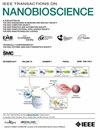A Controllability Reinforcement Learning Method for Pancreatic Cancer Biomarker Identification
IF 4.4
4区 生物学
Q1 BIOCHEMICAL RESEARCH METHODS
引用次数: 0
Abstract
Pancreatic cancer is one of the most malignant cancers with rapid progression and poor prognosis. The use of transcriptional data can be effective in finding new biomarkers for pancreatic cancer. Many network-based methods used to identify cancer biomarkers are proposed, among which the combination of network controllability appears. However, most of the existing methods do not study RNA, rely on priori and mutations information, or can only achieve classification tasks. In this study, we propose a method combined Relational Graph Convolutional Network and Deep Q-Network called RDDriver to identify pancreatic cancer biomarkers based on multi-layer heterogeneous transcriptional regulation network. Firstly, we construct a regulation network containing long non-coding RNA, microRNA, and messenger RNA. Secondly, Relational Graph Convolutional Network is used to learn the node representation. Finally, we use the idea of Deep Q-Network to build a model, which score and prioritize each RNA with the Popov-Belevitch-Hautus criterion. We train RDDriver on three small simulated networks, and calculate the average score after applying the model parameters to the regulation networks separately. To demonstrate the effectiveness of the method, we perform experiments for comparison between RDDriver and other eight methods based on the approximate benchmark of three types cancer drivers RNAs.胰腺癌生物标记物识别的可控性强化学习方法
胰腺癌是恶性程度最高的癌症之一,病情发展快,预后差。利用转录数据可以有效地找到胰腺癌的新生物标志物。人们提出了许多基于网络的癌症生物标记物识别方法,其中包括网络可控性组合。然而,现有方法大多不研究 RNA,依赖先验信息和突变信息,或只能完成分类任务。在本研究中,我们提出了一种结合关系图卷积网络和深度 Q 网络的方法,称为 RDDriver,用于识别基于多层异构转录调控网络的胰腺癌生物标记物。首先,我们构建了一个包含长非编码 RNA、microRNA 和信使 RNA 的调控网络。其次,使用关系图卷积网络学习节点表示。最后,我们利用深度 Q 网络的思想建立了一个模型,用 Popov-Belevitch-Hautus 准则对每个 RNA 进行评分和优先排序。我们在三个小型模拟网络上训练 RDDriver,并在将模型参数分别应用于调控网络后计算平均得分。为了证明该方法的有效性,我们以三种癌症驱动 RNA 为近似基准,进行了 RDDriver 与其他八种方法的比较实验。
本文章由计算机程序翻译,如有差异,请以英文原文为准。
求助全文
约1分钟内获得全文
求助全文
来源期刊

IEEE Transactions on NanoBioscience
工程技术-纳米科技
CiteScore
7.00
自引率
5.10%
发文量
197
审稿时长
>12 weeks
期刊介绍:
The IEEE Transactions on NanoBioscience reports on original, innovative and interdisciplinary work on all aspects of molecular systems, cellular systems, and tissues (including molecular electronics). Topics covered in the journal focus on a broad spectrum of aspects, both on foundations and on applications. Specifically, methods and techniques, experimental aspects, design and implementation, instrumentation and laboratory equipment, clinical aspects, hardware and software data acquisition and analysis and computer based modelling are covered (based on traditional or high performance computing - parallel computers or computer networks).
 求助内容:
求助内容: 应助结果提醒方式:
应助结果提醒方式:


